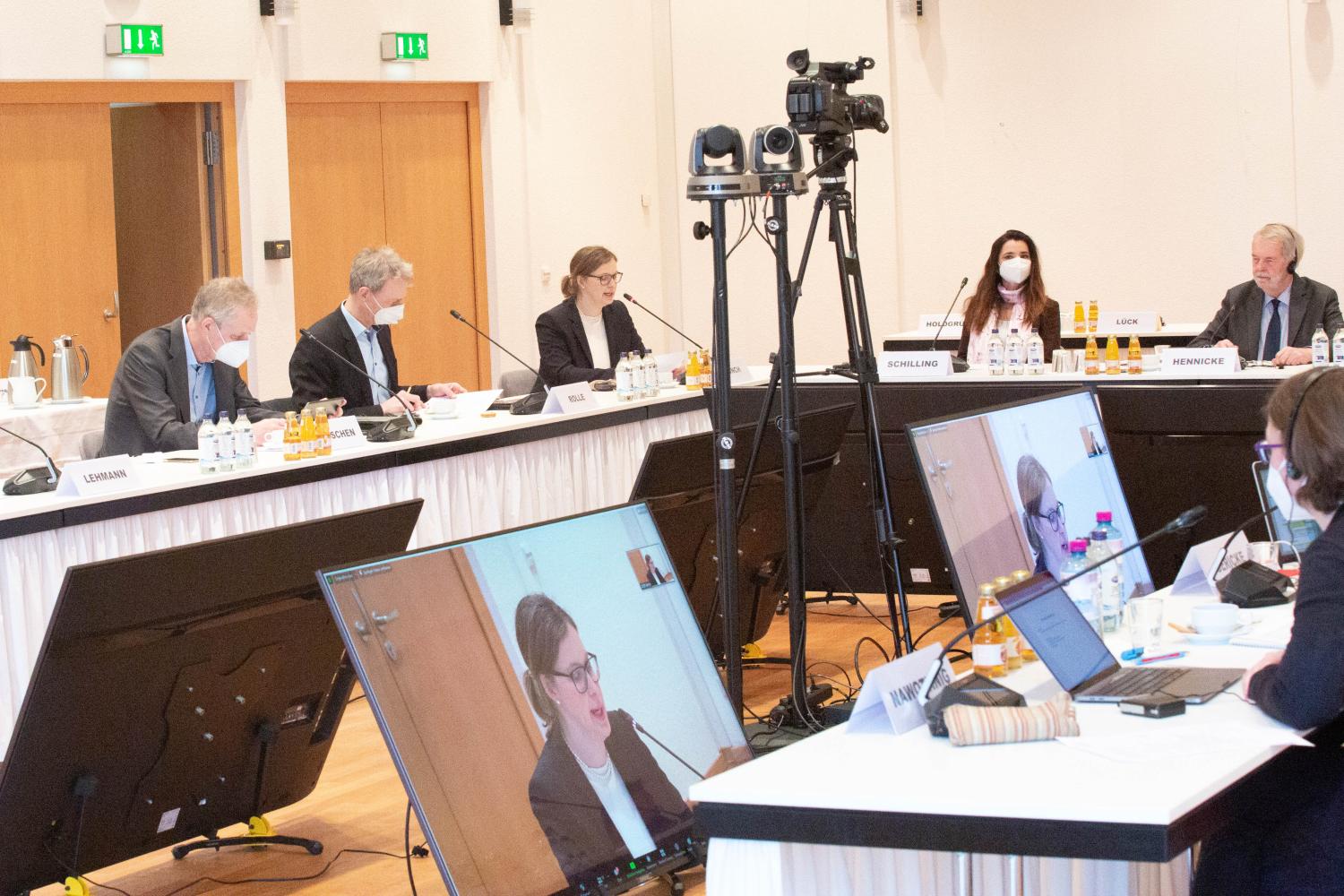Round-up of the 12th GJETC Council Meeting at JDZB: Consequences for Climate Mitigation Policy through Government Changes in Germany and Japan
25th February 2022
The German-Japanese Energy Transition Council (GJETC) met for
two days at JDZB in hybrid form in Berlin and Tokyo. The Council Meeting focused on the changes of
government in both countries and the consequences for Germany's and Japan's climate mitigation
policies. Studies on the decarbonization of the steel industry, long-term scenarios for achieving
climate neutrality and the role of battery systems in the energy transition were also presented.
Through its work, the GJETC is making an important contribution to German-Japanese cooperation
on climate protection issues. Through bilateral knowledge exchange on energy and climate policy
challenges, the preparation of studies and recommendations to the governments of both nations,
the GJETC promotes an ambitious energy transition policy.
“The targets for expanding renewable energies and foster energy efficiency have been increased
significantly in both Japan and Germany. Nevertheless, existing potentials have not yet been
exhausted and the request by the COP 26 in Glasgow, to keep 1.5 degrees within reach, remains a
huge challenge for both countries. In this respect, the bilateral exchange of knowledge between two
leading industrialized countries and the signaling effect of possible pioneering roles is more
important than ever,” explains the German Co-Chair of the GJETC, Prof. Dr. Peter Hennicke.
In March 2022, the GJETC's third council phase will come to an end. After many years of successful
work with a broad study program, several outreach events, innovation roundtables and stakeholder
dialogues that provided a platform for information exchange and discussion among policymakers,
scientists, industry and society, the GJETC is willing to continue its work in a fourth phase. Especially
the cooperation with the German-Japanese Energy Partnership can raise synergies between policy,
industry and research and open new channels for knowledge exchange.
Prof. Tatsuya Terazawa, the Japanese Co-Chair of the GJETC, emphasizes: “We clearly want to
continue the GJETC beyond March 2022. We have already collected initial ideas on the format,
activities and suggestions on possible study topics for this in recent days. Particularly in view of the
challenges of the coming years, namely achieving the self-imposed climate targets of many
industrialized nations, especially Japan and Germany, we are creating an important level for
knowledge-based dialogue with the GJETC."
About GJETC
The German-Japanese Energy Transition Cooperation Council is an international model project to
strengthen knowledge exchange on technologies, policies and the impacts of the energy transition. In
its form, continuity and size, the GJETC is the first German-Japanese cooperation project on the
energy transition of its kind. Founded in spring 2016, the Council conducts an extensive study
program on core topics of the energy transition, holds stakeholder dialogues with industry and civil
society, and has already published seven studies, a series of strategic input and output papers, and
two reports with key recommendations for a successful energy transition in March 2018 and June
2020.
The project, jointly launched by the Wuppertal Institute, ECOS, hennicke.consult and the Institute of
Energy Economics Japan (IEEJ/Tokyo) in spring 2016, is currently funded by the German Federal
Ministry for the Environment, Nature Conservation and Nuclear Safety (BMU) and the Japanese
Ministry of Economy, Trade and Industry (METI). It was funded by the German Federal Environmental
Foundation (DBU), the Mercator Foundation and the Japanese Ministry of Economy, Trade and
Industry (METI) in working phase 1 and 2. The Federal Ministry for Economic Affairs and Energy
(BMWi), and the Japanese-German Center Berlin (JDZB) also support the project. On the German
side, the Wuppertal Institute is coordinating the Council's work as secretariat together with ECOS; on
the Japanese side, the Institute of Energy Economics Japan (IEEJ) is assuming this task.
Photo Galleries
